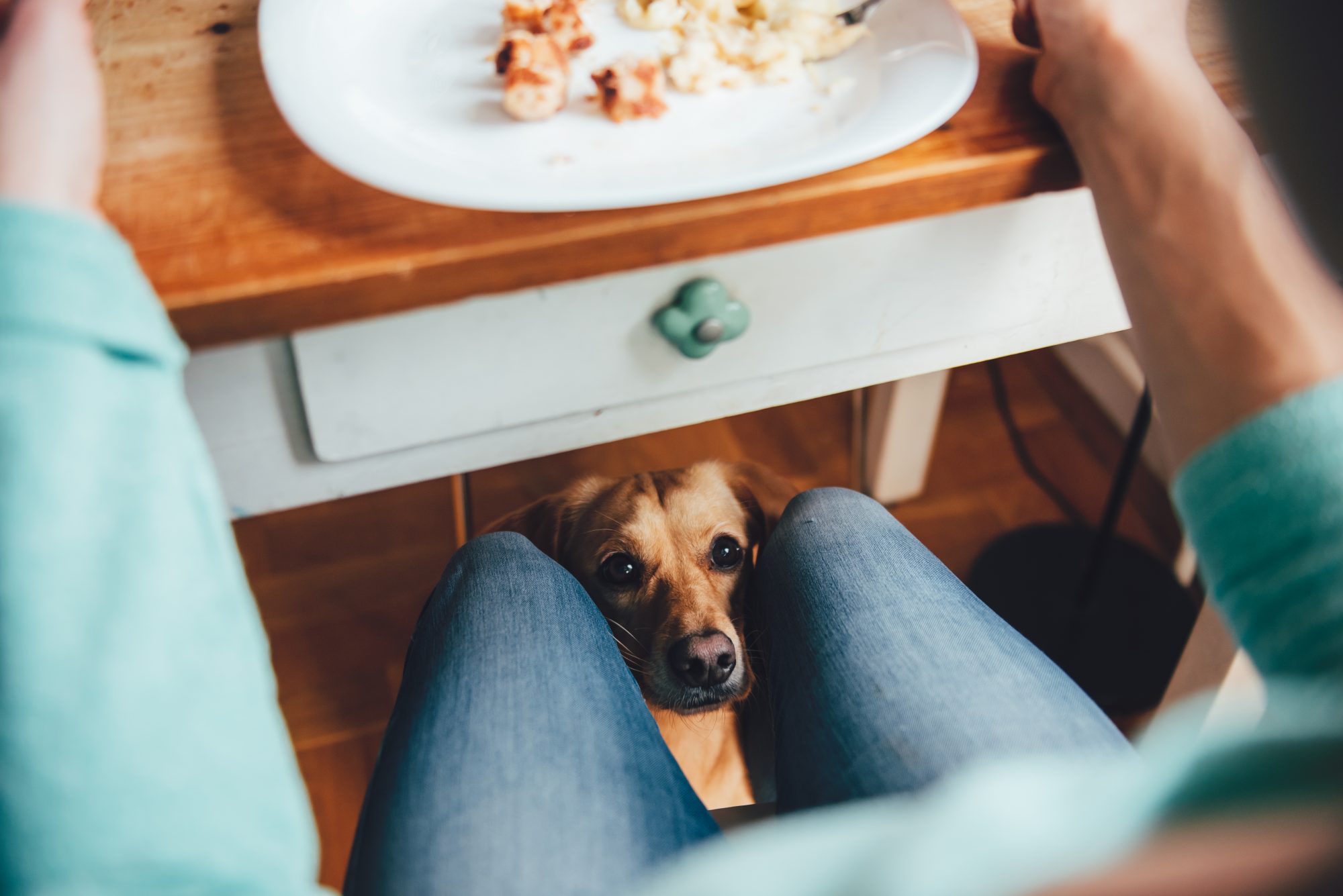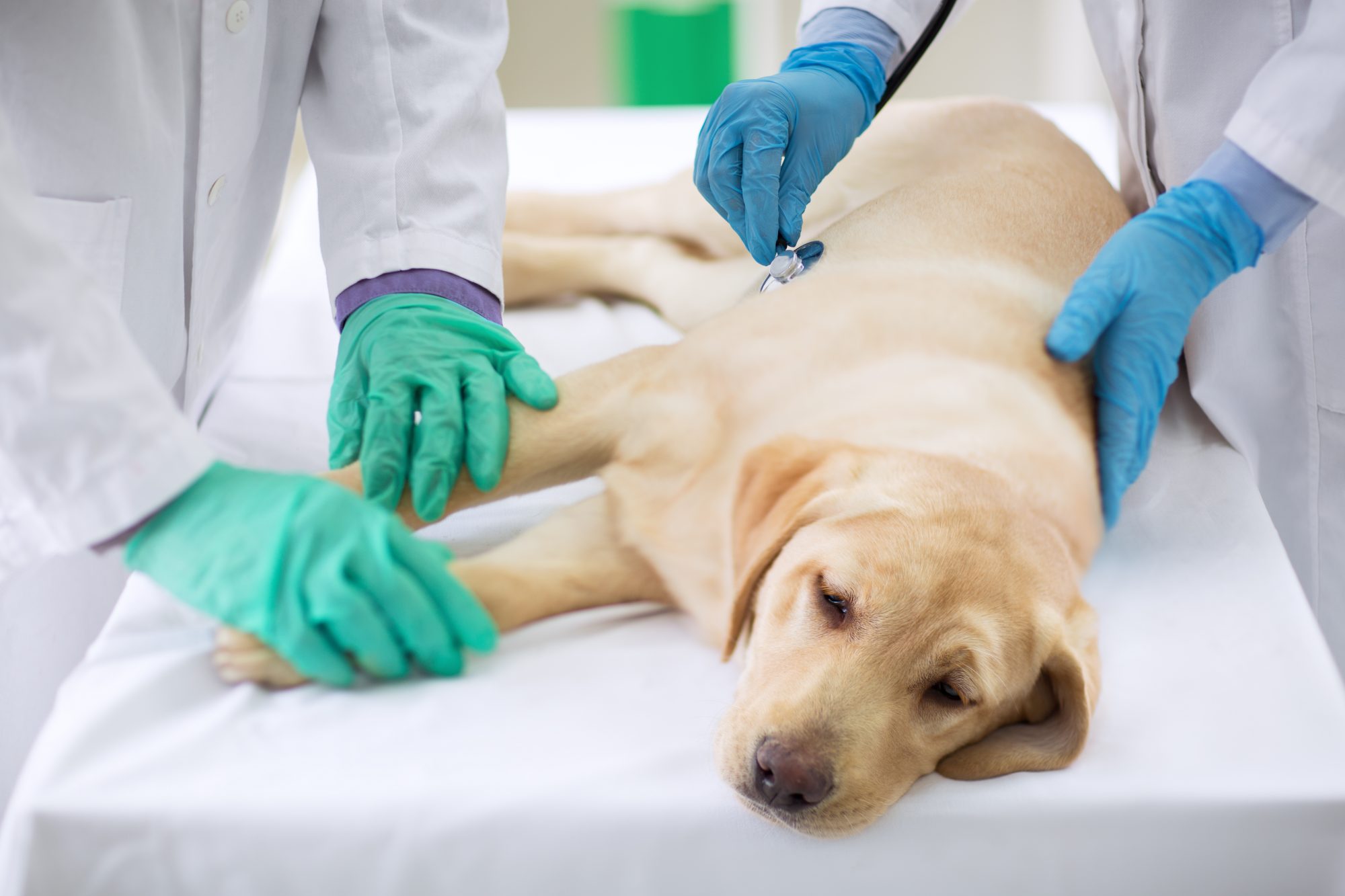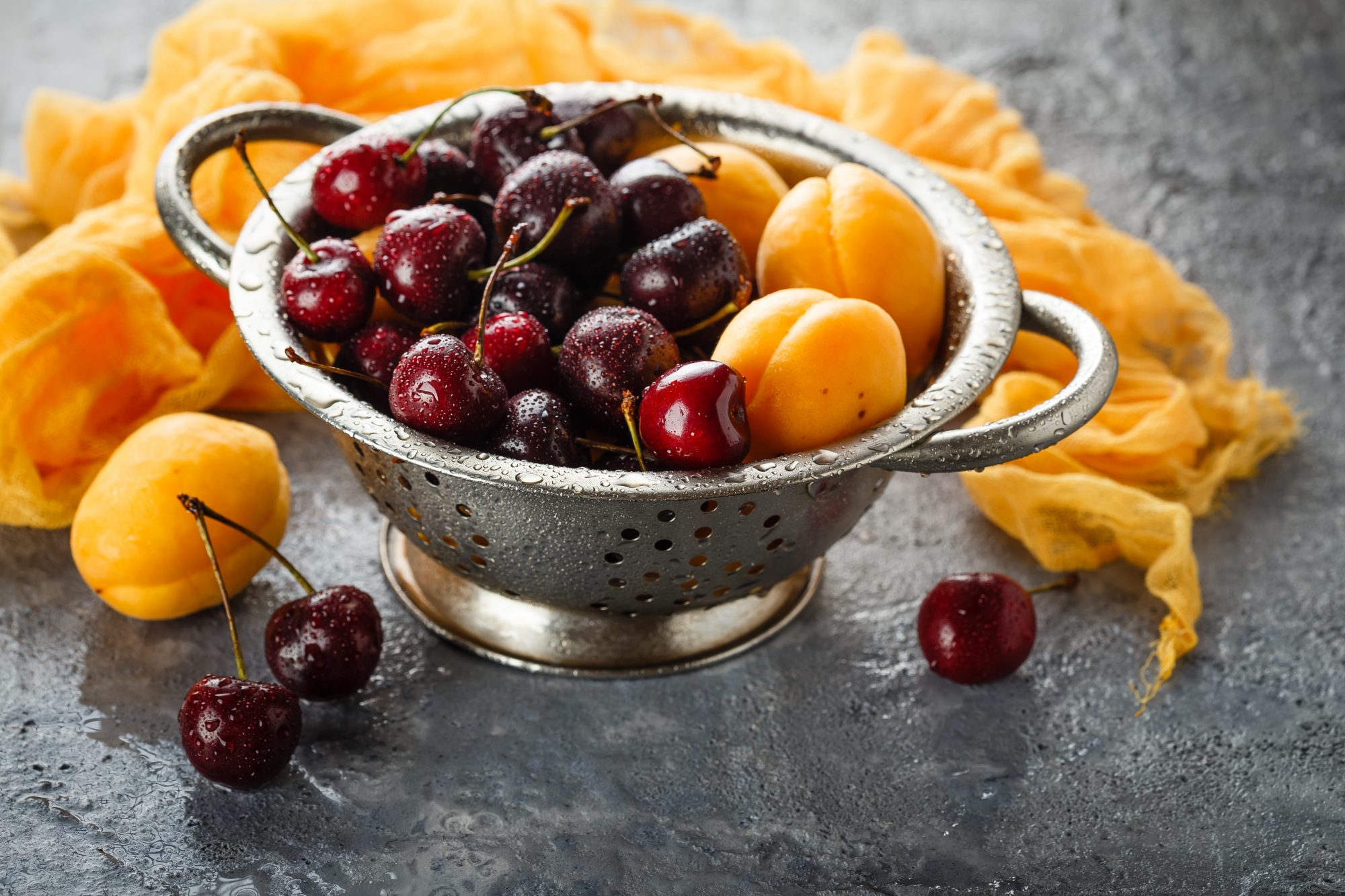Toxic Treats: What You Need to Know

by MANDI BROADBENT, CSR
The ASPCA Poison Control Center handled more than 200,000 cases in 2018 concerning potential poisonings and toxic treats.
We’ve all done it. Your fur-baby is sitting next to your chair, those big eyes fixated on YOUR dinner plate. The anxious shift of the feet as they wait patiently for a reward for being such a good boy or girl. We don’t even think about it. We pick up a juicy cut of meat or a cheesy lump of whatever and toss it down to the eagerly awaiting critter. No big deal, right?

WRONG.
You better think twice the next time you toss your pet those scraps under the table. Some very common foods can be toxic treats to your critter and should be avoided at all costs. Of the 213,773 cases of accidental poisoning reported by the ASPCA Poison Control Center in 2018, nearly 13% had to deal with food toxicity.
“But it’s just a piece of steak…”
Did you make the dish? Did you season it with a mixture? What herbs were used? Do you know what kind of oil was used? Did you use wine to braise it? Unless you can definitively answer all these questions, you really shouldn’t risk it.
Lincolnshire Animal Hospital has come up with a handy list of the Top 10 Toxic Treats for your pet, and why your pet should avoid them.
Chocolate
Containing theobromine, a cousin of caffeine, chocolate toxicity is all too common. Causing diarrhea and vomiting in small amounts, theobromine can cause muscle tremors, seizures, irregular heartbeat, internal bleeding, and even heart attack when consumed in larger quantities. Dark chocolate and real cocoa powders are the most dangerous. They contain the highest concentration of theobromine. White chocolate, however contains only trace amounts of theobromine, but can still cause pancreatitis.
Xylitol
This “sugar alcohol” is a natural sugar substitute extracted from birch wood. A sneaky devil, xylitol can be found in gum, mints, toothpaste, mouthwashes, sugar-free candies and baked goods. It can also be found in some vitamins, supplements, and even some peanut butters! Lethal in even small amounts, the ASPCA received more than 6,500 calls regarding xylitol toxicity in 2018. Ingestion of xylitol can cause a sudden and severe drop in blood sugar, also known as hypoglycemia. It also can cause weakness, lack of coordination, seizures, liver failure, and even death.
Avocado
Containing persin, a fungicidal toxin, ingesting an avocado can make your dog incredibly sick. Lethal in large amounts, persin can cause vomiting, diarrhea, and myocardial damage. Due to it’s high fat content, avocados can also lead to pancreatitis.
Caffeine
Caffeine is a powerful stimulant, and it appears that our four-legged friends are just more sensitive to the stuff. We all remember that coffee beans and grounds, teas, sodas, and energy drinks can all contain caffeine. But did you know it can also be found in candy bars, ice creams, and even flavoring liqueurs? Toxicity is tricky. Caffeine ingestion can cause anything from vomiting and diarrhea, to increased heart rate and cardiac arrhythmias, to tremors, seizures, and even death in large enough doses.

Alcohol
We often forget about the bar area when it comes to pet proofing our homes, but my goodness it’s important! Between the grapes in wine, the ethanol in liquor, the yeast and hops in beer, and the heavy syrups in many mixers, there is no end to the dangers of alcohol and pets. If ingested, your pet may experience vomiting, disorientation, high body temperature, restlessness, excessive panting, or tremors. In severe cases, alcohol intoxication can cause failure of the organ systems and even death.
Macadamia Nuts
You wouldn’t think so but these little nuts are a big pain. Scientists aren’t quite sure what about them makes them so toxic to dogs. But eating even a small amount can get your pet into trouble. Depending on the amount eaten, symptoms can include hind-end weakness/inability to stand or walk, lethargy, or increased body temperatures. Vomiting, diarrhea, tremors, and joint stiffness may also be seen. And since macadamia nuts are high in both fats and oil content, pancreatitis after eating them is also a concern.
Yeast Dough
Raw bread dough containing yeast is pretty dangerous to your pet. According to the Pet Poison Helpline, the yeast use sugars in the unbaked dough, a process called fermentation. Fermentation produces carbon dioxide gas and alcohol. The carbon dioxide gas is what makes bread rise. Alcohol from the fermenting yeast is then rapidly absorbed into the bloodstream. The result: alcohol poisoning.
But that isn’t the only risk…
Unbaked bread dough also expands in the warm, moist body. This often results in a bloated or distended stomach. Depending on the size and shape of your pet, the biggest risk is bloat. Gastric-dilatation volvulus (GDV), or bloat, is what happens when a distended or bloated stomach flips or twists. Signs of bloat, or GDV, include vomiting, non-productive retching, a distended stomach, an elevated heart rate, weakness, collapse, and death.
**Bread dough isn’t the only thing that causes “bloat” though. If your pet is exhibiting the above symptoms, do not wait. Contact your veterinarian or local animal ER immediately.
Pitted Fruits

There is much debate about whether the amount of cyanide found in pitted, or “stone” fruits is toxic enough to get your pet sick. However, the general consensus is that they should be avoided. A pitted fruit is any fruit that contains pits, or “stones”. Cherries, peaches, avocados, nectarines, and apricots are all examples of pitted fruits. Even though the pits may not contain enough cyanide to poison your pet, the ingestion of the pit can still cause issues:
- Biting down on a pit can damage or break your pet’s teeth.
- The rough edges of the pit could damage the esophagus while going down.
- The pit could become obstructed in your pet.
Grapes/Raisins
Another “mystery toxin”, we still don’t quite understand what about grapes is so bad for our pets, nor why toxicity doesn’t neccessarily seem to be dose-dependent. Grapes, raisins, sultanas, and even currants are incredibly toxic to your pet, even if they only eat one! Found commonly in juice, trail mix, breads, and wine, ingestion of even a small amount can result in severe acute renal (kidney) failure, vomiting, diarrhea, abdominal pain, and/or anorexia. Additionally, since raisins are a common “sweetener” for many healthier snack options, you should also look for them in cookies, snack bars, and kid’s snack packs.
Garlic/Onions
It would be great if the most offensive thing about onions and garlic was the smell, but turns out these delicious demons are pretty toxic to your critters. Belonging to the allium family of plants, both garlic and onions contain thiosulfate – a substance toxic to pets, but not to humans. Thiosulfate causes oxidative damage to red blood cells, resulting in hemolytic anemia. Symptoms of anemia in your pet include pale gums, rapid breathing, lethargy, weakness, jaundice, and dark colored urine.
But the danger doesn’t actually stop there. Just like most of the foods on this list, regardless of whether or not the food is toxic by definition, the sugars, fat, and spice/flavoring in many human foods aren’t good for our pets. Causing GI upset and inflammation, pets can experience vomiting, lethargy, diarrhea, inappetence, abdominal discomfort, depression, dehydration, and even pancreatitis after getting into many human goodies.
It isn’t just food that can get your pet into trouble.
Houseplants and flowers are a hidden toxic danger in our homes, too. Do you know which ones are safe? Houseplants, although aesthetically appealing, accounted for over 255 of the emergency calls to the ASPCA Animal Poison Control Center in 2016. And neither dogs nor cats seem immune to their charms. Owners often report seeing pets chewing on leaves or plant stems, but not realizing that it could be toxic until after the pet starts to act ill. Common symptoms of toxic plant ingestion include drooling, nausea, vomiting, and diarrhea. Depending on the plant and how much was ingested, toxicity can also lead to coordination problems, respiratory and cardiac distress, neurological impairment, and even death.
Don’t risk it. Keep these flowers and plants up and away from curious pets:
- Daffodils
- Tulips
- Hydrangeas
- Marijuana
- Pothos
- Aloe Vera
- Ivy
- Poinsettias
- Lilies
- Rhododendrons
If you suspect your pet may have ingested something harmful, take action immediately. Contact your veterinarian, overnight veterinary emergency center, or a poison assistance hotline as soon as possible. Both Pet Poison Helpline and ASPCA Animal Poison Control Center are available 24/7 to assist pet owners with questions or concerns. However, keep in mind that both of these services charge a fee when dealing with toxicity calls:
ASPCA Animal Poison Control Center (888) 426-4435 – $65 per call charged to either credit card or phone bill.
Pet Poison Helpline (855) 764-7661 – $59 per call charged to credit card.
Check out more on Poison Prevention Awareness

